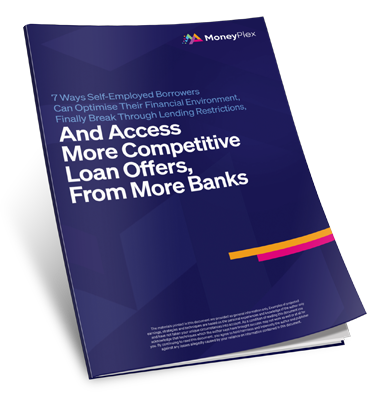
8 Tips To Get Smarter Finance When You’re Self-Employed
Whether you’re looking to buy a home or vehicle, invest in property, or upgrade equipment for your business, getting finance when you’re self-employed can be challenging.
Although your income may be the same as (or even more than) a standard wage earner, it’s not likely to be as stable. And if there’s one thing banks like, it’s stability.
These belowmentioned tips may help improve your chances of finance approval. Please note, this is generalised advice only and does not take your unique situation into account. If you have questions and want extra information specific to your situation, get in touch with our expert team.
- Pay yourself first. Before you pay anyone else (including bills) be sure to pay yourself a regular wage into a personal bank account. This will separate your business and personal finances making it easier to calculate profit and loss. And it will make you more attractive to a wider range of lenders because they can see a track record of stable income (just like a salary).
- Consider life and income protection insurances. Not only will these insurances help to protect your family if something unforeseen happens to your health, they will give lenders confidence that your loans can be repaid if circumstances change.
- Manage cash flow. Pay your bills on time so the money in your bank account reflects your true financial position. And be sure to collect money on time – don’t let debtors exceed their agreements. Shortening terms from 60 days to 30 days (and even 7 days) can reduce your exposure to loss and do wonders for your cash flow. It also shows lenders you know how to manage money.
- Consolidate your debts. Trying to service multiple loans (and creditors) is not only inefficient, it can be stressful. By consolidating your debts into one loan, you can save interest, improve relations with suppliers, and ease the pressure of people chasing you for money.
- Prepare for seasonal variations. Don’t spend all the extra money you make in good months – put some aside as a financial buffer for slower months. This will enable you to pay yourself a wage even when times are tough, giving you and your family financial stability.
- Follow a business plan. Don’t be tempted to fly by the seat of your pants month by month. Make a simple plan and take action each day to implement it. As they say, if you don’t have a goal, you’ll hit it every time. Naturally, nothing beats financials when assessing a loan application. But a good idea implemented with discipline may give lenders the extra confidence they need to approve your application (or increase your credit limit).
- Approach the right lenders. Many lenders only like to approve finance for wage earners. They don’t understand or appreciate the financial variables of self-employed business owners and see them as a risk. Applying for finance with these lenders will only increase your chances of rejection and may even negatively affect your credit score.
- Get expert help. Everybody has a special set of skills and areas of experience. Nobody can know and be good at everything – especially when it comes to complicated, ever-changing areas of finance. A good mortgage broker will help you prepare your paperwork, give you access to an array of loan options from lenders who specialise in lending to self-employed business owners, and regularly review your. As business coach Dan Sullivan says, “Who, not how.”
As experienced Mortgage Brokers, Accountants, and Bookkeepers with collective experience of more than 30 years, the team at MoneyPlex has helped hundreds of self-employed professionals and tradespeople get fast approval for the right finance. For more information specific to your situation, request a Lending Strategy Session.
Disclaimer
The materials printed in this article are provided as general information only. Examples of projected earnings, strategies and techniques are based on the personal experiences and knowledge of the author only and have not taken your unique circumstances into account. As a condition of reading this article you acknowledge that techniques which the author says have brought success may not work as well or at all for you. By reading this article, you agree to hold harmless and indemnify the author and their associates against any losses allegedly caused by your reliance on information contained in this document.

